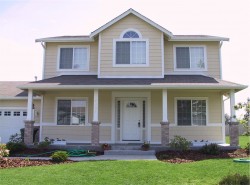Should I Go into Sober Living?
Drug treatment programs equip recovering addicts with the tools and strategies needed to live a drug-free lifestyle. Once a person completes drug treatment, the ability to apply what’s been learned ultimately determines his or her ability to maintain abstinence.
Many of the challenges recovering addicts face in the real world stem from the psychological dependency drug addiction breeds. While drug treatment programs do a good job at breaking the body’s physical dependence on drugs, the psychological aspects of addiction can stay with a person long after he or she completes a drug treatment program. Sober living programs provide the type of training ground a person needs to develop a drug-free lifestyle.
Deciding whether to enter a sober living program has as much to do with a person’s individual treatment needs as it does the home environment that waits for him or her once drug treatment ends. As structure and stability become necessary components of a drug-free lifestyle, reentering a destructive home environment can undo much of the progress made in drug treatment. Under these conditions, the structure and stability afforded through sober living programs may be especially needed.
Sober Living Programs
Sober living homes function as semi-independent living environments allowing residents to come and go as they please provided they follow the rules of the program. House rules may take the form of –
- Residents must maintain or seek out employment
- Each resident must carry out regular household chores
- Residents must obtain a sponsor
- Regular attendance at house meetings
- Regular attendance at 12-Step support meetings
- Curfew requirements
- No drug or alcohol use
- No drugs or alcohol on the grounds
As privately-run programs, rent payments from residents finance much of the costs involved with running a sober living home. According to the Journal of Psychoactive Drugs, sober homes offer recovering addicts the type of real-life experience that greatly increases a person’s long-term recovery success.
Developing a Drug-Free Lifestyle

A sober home is truly a home where you can re-establish your life.
Over time, people caught up in drug or alcohol addictions develop a type of lifestyle that supports ongoing drug use. An addiction lifestyle seeks out certain types of people, activities and hang-outs. All of these factors work together to maintain a person’s psychological dependency on drugs.
Sober home environments provide the type of day-in day-out habits, routines and social groups needed to develop a drug-free lifestyle. Ultimately, people coming off long-time and/or chronic addictions stand to gain the most benefit from a sober living program.
Structure & Stability
According to the OLR Research Report, an unstable home environment greatly increases the likelihood a person will relapse shortly after completing drug treatment. A lack of structure and stability in a home only works to aggravate a person’s urge to escape through drug use.
The rules requirement found in sober living programs goes a long way towards creating a structured living environment so residents know what’s expected of them throughout their stay in the program. House meetings and 12-Step group attendance also support the importance of stability within a recovering addict’s daily life.
 Sober House Rules -
Recovering from substance abuse is a difficult and often long journey. Many people enter inpatient facilities or rehabilitation facilities and find themselves cut off from the bad influences that overran their lives; however, many of these recovering addicts find themselves unable to reintegrate into the world when they return. Sober housing provides an environment where ...
Sober House Rules -
Recovering from substance abuse is a difficult and often long journey. Many people enter inpatient facilities or rehabilitation facilities and find themselves cut off from the bad influences that overran their lives; however, many of these recovering addicts find themselves unable to reintegrate into the world when they return. Sober housing provides an environment where ...  How Can I Stay Connected to Family and Friends While Living in a Sober House? -
Unlike with inpatient treatment facilities, sober houses allow residents to have their cell phones and to also leave the premises for a good portion of the day.
How Can I Stay Connected to Family and Friends While Living in a Sober House? -
Unlike with inpatient treatment facilities, sober houses allow residents to have their cell phones and to also leave the premises for a good portion of the day.  The Importance of Relationships While Living in Sober Housing -
Attending 12 step meetings regularly and being committed to the program has been shown to reduce relapse rates in sober houses.
The Importance of Relationships While Living in Sober Housing -
Attending 12 step meetings regularly and being committed to the program has been shown to reduce relapse rates in sober houses.  14 Tips on Choosing the Sober House that is Right for You -
Sober houses can be an effective aftercare option, as long as you make sure to choose one that fits your specific needs.
14 Tips on Choosing the Sober House that is Right for You -
Sober houses can be an effective aftercare option, as long as you make sure to choose one that fits your specific needs.